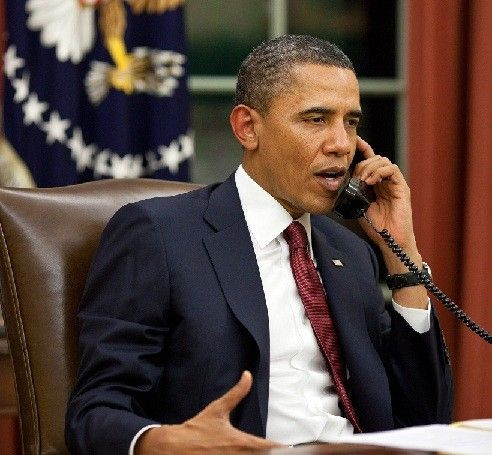S&P Downgrade: Will It Hurt President Obama?s Job Creation Effort?
Column

For President Barack Obama, the mission is obvious, but hardly easy, and some ways it's been made harder by Standard & Poor's (S&P) stunning and controversial downgrade of the U.S. Government's credit rating: implement policies that increase job growth to a minimum of 150,000 to 200,000 new jobs per month to substantially lower the U.S.'s high 9.1 percent unemployment rate.
Further, S&P's downgrade -- if it holds -- will make President Obama's task that much harder because the credit downgrade will likely increase interest rates across-the-board -- something that will increase borrowing costs for coporations, consumers, and jurisdictions. That higher cost for credit could compell some companies to curtail or at least scale-back their hiring efforts in 2011 -- and that would weigh on job growth.
What's more, from an electoral standpoint, Obama has approximately nine months to demonstrate to the American people that he and his party's policies, the policies of the Democratic Party, can create an adequate number of jobs per month.
That's because political science survey research tells us that most American voters tend to make up their minds whom to vote for about five months before election day in November, roughly around June.
In other words, Obama has until June 2012 to demonstrate that he is job creator. If not, then the American people will probably vote him and the Democratic Party out of power in November 2012. July's jobs report was adequate, with 117,000 jobs created, but the nation is still short a staggering 14 million jobs -- much of that job loss stemming from the financial crisis and 2007-2009 recession which Obama inherited.
Americans Give U.S. President Credit or Blame
But don't misunderstand: the American people will not vote President Obama out of office because the opposition party, in this case Congressional Republicans, have offered any semblance of a better plan to address the nation's number 1 problem -- they haven't. The Republican Party's stance thoughout the financial crisis peiod has been appalling -- they've amounted to: saying no, saying hell no, obstruction, and advocating reckless policies.
It's just that the American people historically give the president credit when the economy is doing well and, conversely, assess blame to the president when the economy is performing poorly, even though the president does not have control over free market forces. No, it isn't fair -- but that's the way the American people view the presidency: they elect presidents to solve problems.
The late, great Cornell University Historian/Political Science Professor Clinton Rossiter, arguably the greatest U.S. presidency scholar of all time, first conceptualized this unique burden the president shoulders in his book "The American Presidency."
In it, Rossiter said the U.S. president performs 10 roles, and one of them is U.S. economy manager.
Essentially, the American people view the president as "the economist above all the economists."
And, no, it doesn't matter that many of the problems Obama is facing -- and that other presidents faced during their first term -- started under someone else's presidency: the American people say, 'when you become president, they become your problem.'
Simply, the American people expect and want their president to solve problems, period.
'The Buck Stops Here'
President Harry S. Truman had a phrase for this all-encompassing presidential responsibility:
"The buck stops here," Truman said. He also had a copy of the phrase posted on his Oval Office desk.
Hence, President Obama has about nine months to demonstrate to the American people that he and his party's policies can create 150,000 to 200,000 jobs per month with a strong economy and ample opportunities for all.
© Copyright IBTimes 2024. All rights reserved.



















